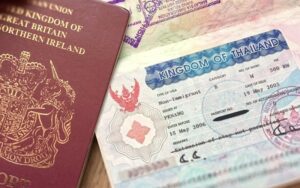Child custody is one of the most sensitive and important legal issues in family law, particularly when parents separate or divorce. In Thailand, child custody is governed by the Thai Civil and Commercial Code, which emphasizes the welfare and best interests of the child above all else. Understanding the importance of child custody in Thailand is essential for parents, guardians, and legal practitioners, as custody decisions affect a child’s upbringing, emotional well-being, education, and long-term development. Properly addressing custody issues provides legal clarity, stability, and protection for both children and parents.
Legal Framework for Child Custody in Thailand
Under Thai law, parental power refers to the rights and duties of parents to care for and manage their child’s life, property, and welfare. Child custody arrangements are determined either by mutual agreement between parents or by court order when disputes arise.
In cases of divorce by mutual consent, parents may agree on custody arrangements and register them with the district office. In contested divorces, the Family Court decides custody based on the child’s best interests. The law applies equally to Thai nationals and foreign parents, although international cases may involve additional considerations.
Protection of the Child’s Best Interests
The most fundamental importance of child custody in Thailand is the protection of the child’s best interests. Thai courts prioritize factors such as the child’s physical and emotional well-being, stability, education, and moral development when making custody decisions.
By legally establishing custody, the court or agreement ensures that the child lives in a safe and supportive environment. This legal focus helps prevent neglect, abuse, or instability that may arise from unresolved parental disputes.
Legal Clarity of Parental Rights and Responsibilities
Child custody arrangements provide clear legal recognition of parental rights and responsibilities. Without formal custody determination, disagreements may arise over who has the authority to make decisions regarding the child’s education, healthcare, travel, and daily care.
Establishing custody in Thailand clarifies:
-
Who has decision-making authority
-
Where the child will reside
-
How parental responsibilities are shared
This clarity reduces conflict and ensures that both parents understand their legal roles.
Stability and Emotional Security for the Child
Children are particularly vulnerable during parental separation or divorce. Formal custody arrangements provide stability and emotional security by establishing predictable living arrangements and routines.
In Thailand, courts recognize the importance of continuity in a child’s life, including maintaining relationships with caregivers, attending the same school, and living in familiar surroundings. Custody decisions aim to minimize disruption and support the child’s emotional development.
Importance of Custody in Divorce Proceedings
Child custody is a central issue in divorce proceedings in Thailand. Divorce without clear custody arrangements can leave children in uncertain and potentially harmful situations.
By addressing custody during divorce:
-
The child’s living arrangements are legally secured
-
Parental authority is clearly defined
-
Potential disputes are resolved early
Proper custody determination ensures that the child’s needs are not overlooked amid marital conflicts.
Role of the Family Court
Thailand’s Family Courts play a crucial role in resolving custody disputes. Judges are trained to consider the child’s best interests and may seek input from social workers, psychologists, or other experts.
The court may consider factors such as:
-
Each parent’s ability to provide care
-
The child’s age and preferences (where appropriate)
-
The emotional bond between the child and each parent
This specialized approach underscores the importance of custody in protecting children’s welfare.
Child Custody and Child Support
Child custody is closely linked to child support obligations. In Thailand, the parent who does not have primary custody is typically required to provide financial support for the child.
Establishing custody helps ensure:
-
Fair allocation of financial responsibility
-
Legal enforceability of child support payments
-
Adequate resources for the child’s upbringing
Proper custody arrangements support both emotional and financial stability for the child.
Importance of Custody for Unmarried Parents
For unmarried parents in Thailand, child custody has additional legal significance. Under Thai law, the mother generally has sole parental power unless the father has legally legitimized the child.
Custody arrangements clarify parental rights and responsibilities, particularly for fathers seeking involvement in their child’s life. Legal custody determination ensures that both parents’ roles are properly recognized and protected.
International Child Custody Issues
Thailand is home to many international families, making cross-border custody issues increasingly common. Child custody arrangements are crucial in preventing disputes involving relocation, travel, or international abduction.
Legal custody orders provide:
-
Clear rules for international travel
-
Protection against unlawful removal of the child
-
Legal certainty in cross-border disputes
Proper custody determination helps safeguard children in international family situations.
Enforcement and Modification of Custody Orders
Another important aspect of child custody in Thailand is the ability to enforce and modify custody orders. Circumstances may change over time, requiring adjustments to custody arrangements.
Thai law allows for modification of custody orders when it serves the child’s best interests. Enforcement mechanisms ensure compliance with custody and visitation orders, protecting the child’s rights.
Emotional and Social Impact of Custody Decisions
Child custody decisions have long-term emotional and social implications. A well-considered custody arrangement supports healthy relationships, emotional development, and social stability.
Conversely, unresolved or poorly managed custody disputes can harm children emotionally and psychologically. Recognizing the importance of custody encourages responsible decision-making by parents and courts alike.
Importance of Legal Guidance in Custody Matters
Child custody cases in Thailand involve complex legal and emotional considerations. Legal guidance helps parents understand their rights, obligations, and options, and ensures that custody arrangements comply with Thai law.
Lawyers can assist with negotiation, mediation, court proceedings, and enforcement, helping families achieve fair and child-centered outcomes.
Conclusion
The importance of child custody in Thailand lies in its central role in protecting the welfare, stability, and future of children. Proper custody arrangements provide legal clarity, emotional security, and enforceable parental responsibilities. Whether arising from divorce, separation, or disputes between unmarried parents, child custody decisions must prioritize the best interests of the child. By understanding the legal framework and seeking appropriate guidance, parents can navigate custody matters responsibly and ensure that children are supported, protected, and given the opportunity to thrive under Thai law.






















